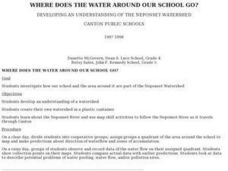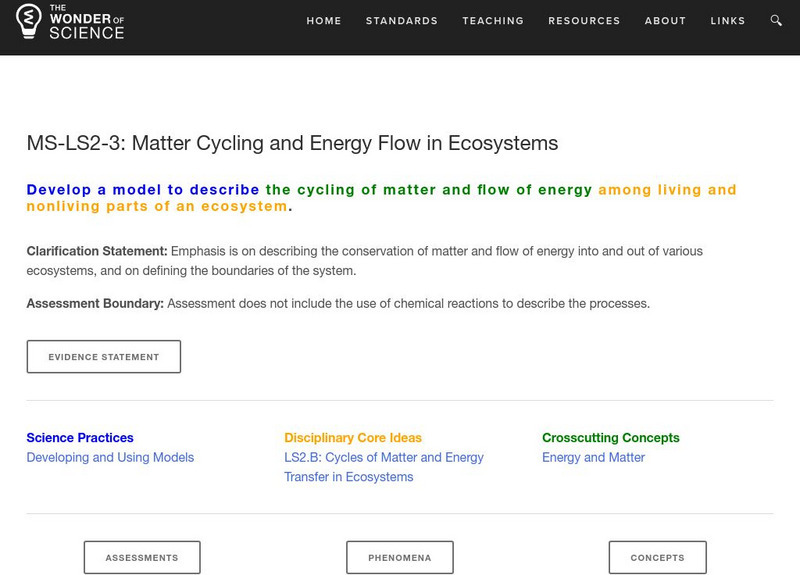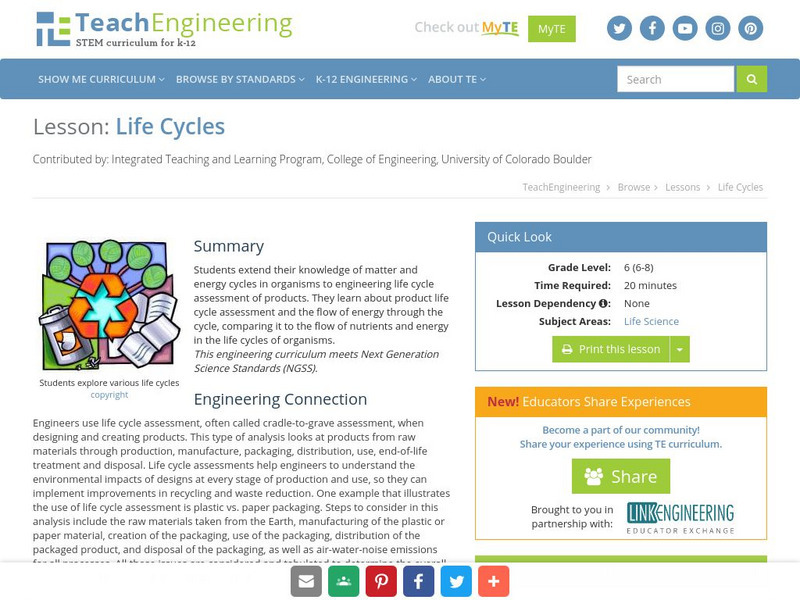Curated OER
Misplaced Blame
Learners, after researching a variety of resources, paraphrase examples of how it feels to be wrongly blamed or accused of an incident today, yesterday and in the future. They list the consequences of such actions. In addition, they...
Curated OER
Selecting Soil Organisms in Compost
Students conduct an experiment to demonstrate that many of the enzyme systems needed to break down society's wastes exist in nature among the decomposers in a compost pile. They culture compost bacteria on starch agar to examine the...
Curated OER
Selecting Soil Organisms in Compost
Pupils demonstrate that many of the enzyme systems needed to break down--and therefore clean up-society's wastes already exist in nature among the decomposers. They select the best starch-munching organisms by altering the environment in...
Curated OER
Forecast Fever
Ninth graders investigate what high-tech tools are used to gather weather data and make weather forecasts. They view a video and a PowerPoint presentation, and conduct research on a cloud chart website. Students make local weather...
Curated OER
Where Does the Water Around Our School Go?
Students in groups, map quadrants of the area around the school and make predictions about the direction of waterflow and zones of accumulation that will occur when it rains. Then when it does rain they check to see if their prediction...
Curated OER
Evaporation
Students break into small groups with four or five students per group. Each is given a styrofoam plate on which they write their group name on and 2 teaspoons of warm water. They place their plate on a paper towel somewhere in the room...
Curated OER
Air Masses
Middle schoolers examine the physical characteristics of several types of air masses to discover how air masses can be identified and defined by their temperature and moisture content.
Curated OER
Current Interactions
High schoolers design an experiment to see how wind, temperature, and salinity work together to influence ocean currents and present it in a report format. They explain to their classmates how experiment findings relate to ocean currents.
Curated OER
The Right Tool for the Job: Diagnosis Spectrum
Pupils watch a section of a medical TV show and individually make a written recommendation of appropriate imaging techniques to be used and explain why they chose these techniques. They participate in a discussion revealing their...
Curated OER
Butterfly Lesson
Students identify that Idaho is a home to 168 species of butterflies and they are an important part of many habitats. They also identify how to use the Digital Atlas of Idaho and write a report regarding information of their assigned...
Curated OER
Mystery Polymers
Students examine how some natural substances are polymers. In this polymer lesson students complete a lab and give examples of a physical change.
Curated OER
Is It Grown or Mined?
Learners are introduced to how to identify various minerals. In groups, they compare and contrast raw materials that were grown and mined. They discuss their views on mining and identify the ore minerals and their purpose to end the...
Curated OER
Trail Adventure
Pupils create a trail with numbered specimens. Students complete an accurate and functional interactive trail activity brochure. They complete a web page tree identification guide and interactive identification activity. Pupils answer...
OpenSciEd
Open Sci Ed: 7.4 Matter Cycling & Photosynthesis
This unit on matter cycling and photosynthesis has students investigating the idea that all food comes from plants.
The Wonder of Science
The Wonder of Science: 5 Ls2 1: Environmental Matter Cycling
Work samples, phenomena, assessment templates, and videos that directly address standard: 5-LS2-1: environmental matter cycling.
The Wonder of Science
The Wonder of Science: Ms Ls1 6: Photosynthesis Matter Cycling and Energy Flow
Work samples, phenomena, assessment templates, and videos that directly address standard MS-LS1-6: photosynthesis - matter cycling and energy flow.
The Wonder of Science
The Wonder of Science: Ms Ls2 3: Matter Cycling and Energy Flow in Ecosystems
Work samples, phenomena, assessment templates, and videos that directly address standard MS-LS2-3: matter cycling and energy flow in ecosystems.
TeachEngineering
Teach Engineering: Life Cycles
In this lesson, students will extend their knowledge of matter and energy cycles in an organism to engineering life cycle assessment of a product. Students will learn about product life cycle assessment and the flow of energy through the...
National Institute of Educational Technologies and Teacher Training (Spain)
Ministerio De Educacion: La Dinamica De Los Ecosistemas
This unit shows how ecosystems change over time and how matter and energy, which are essential to its operation, are transformed and passed from one living thing to another forming, in some cases, authentic cycles. It contains 19...
ArtsNow
Arts Now Learning: Be One With the Water [Pdf]
Fourth graders will explore states of matter and the water cycle by bringing water to life with their bodies. By enacting the changes that water molecules experience, 4th graders will learn scientific information kinesthetically.
Utah Education Network
Uen: Animals in the Ecosystems
Write about animal contributions to their environment.
American Chemical Society
Middle School Chemistry: Changing State: Evaporation
Students build a model of a water molecule and design an experiment to see if adding energy affects the rate of evaporation.
Alabama Learning Exchange
Alex: All About Clouds
This lesson uses hands-on activities and trade books along with websites to explain the formation of clouds. This lesson may be used in conjunction with a weather unit.
Other popular searches
- Cycles of Matter
- Ecology Cycles of Matter
- Different Cycles of Matter
- Cycles of Matter Webquest
- Science Cycles of Matter
- Cycles of Matter and Energy
- Cycles of Matter Web Quest



















